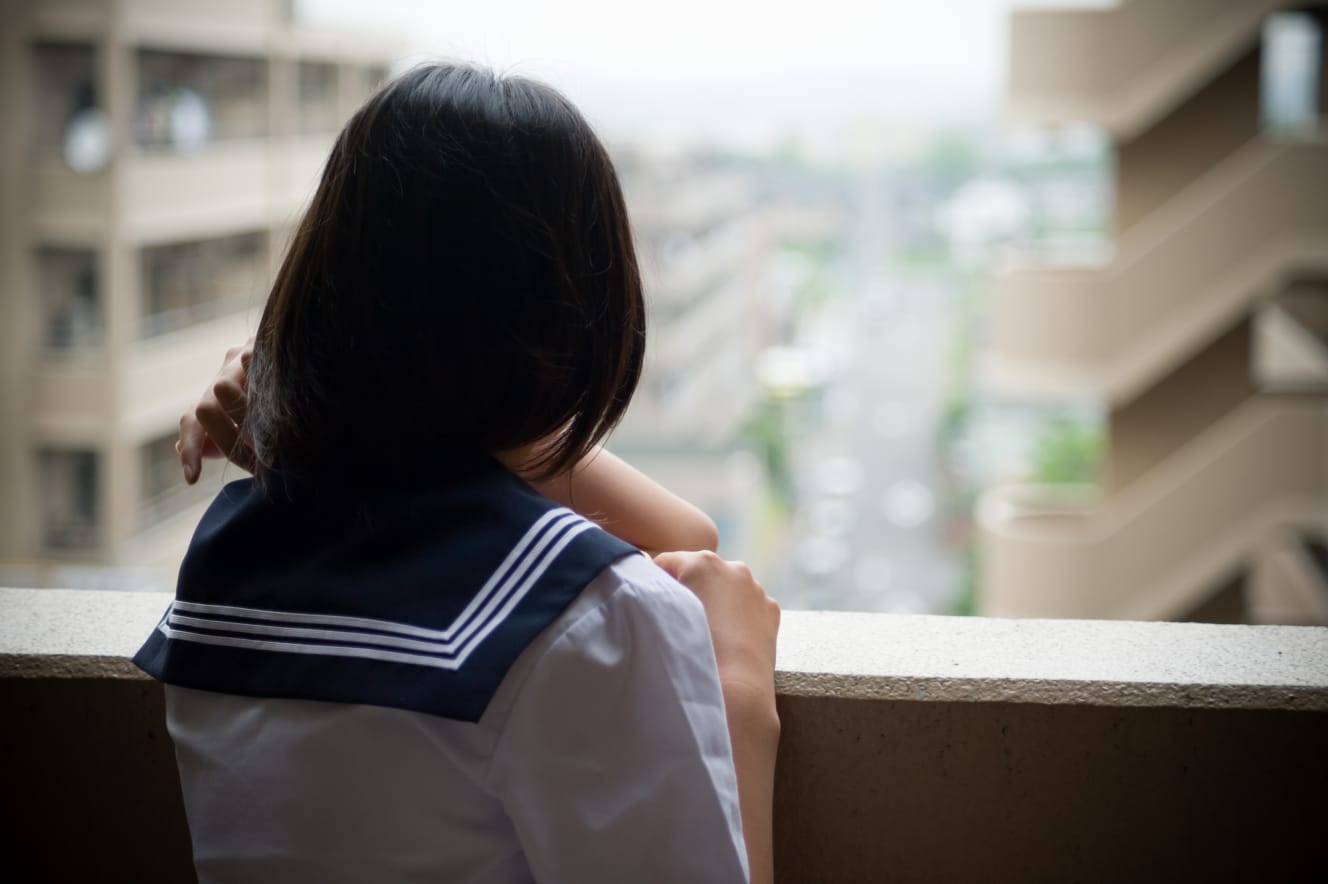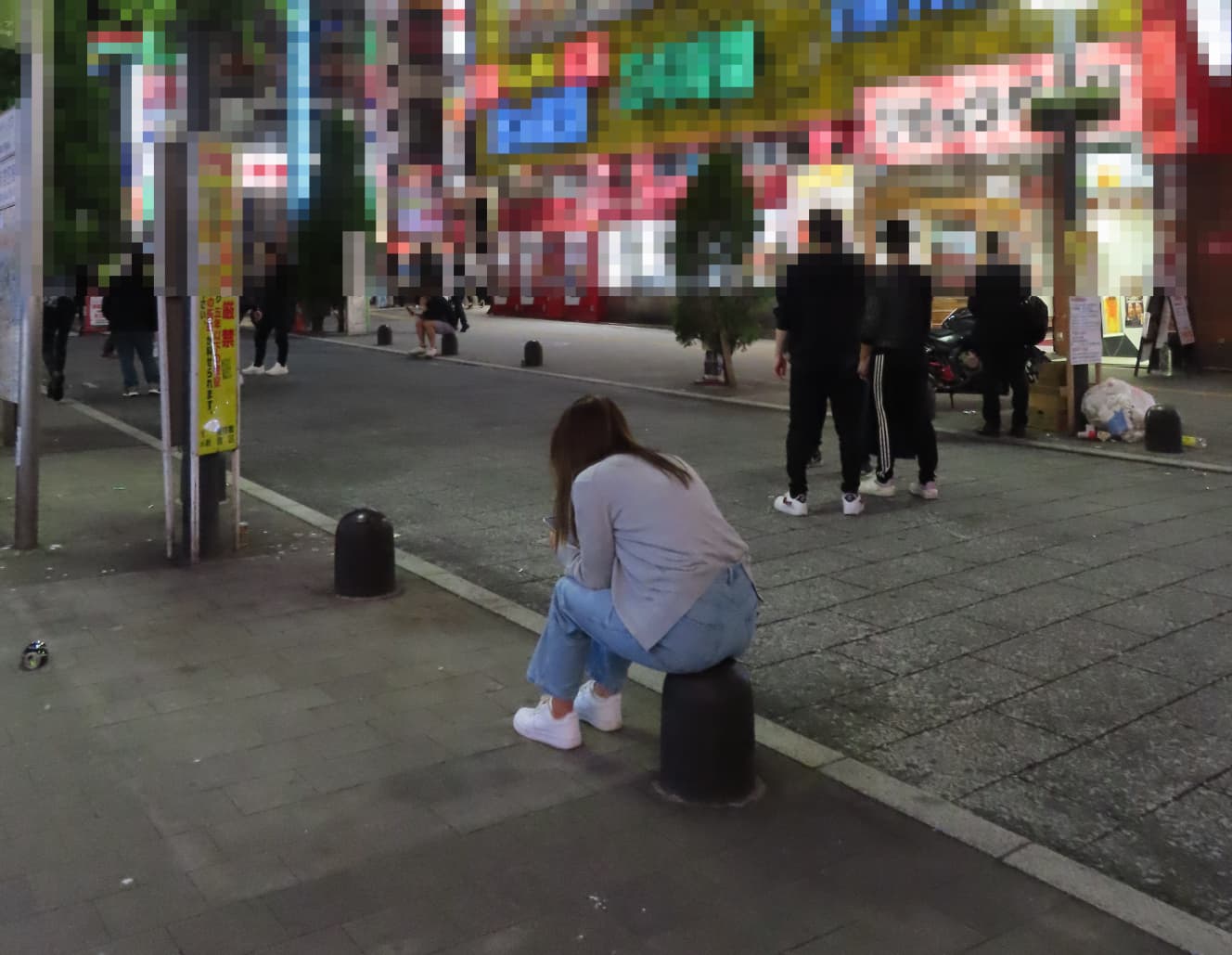Parents told her to go steal a bottle if she was hungry… “Neglected 15-year-old girl” who could not take a bath for days
Nonfiction writer Kota Ishii delves into the realities of the "young homeless," young people who have lost their homes!

Recently, more and more young people are not even able to become Internet café refugees due to money problems, even after losing their homes. This is especially true for teenagers. Instead, what we often see is cases where they roll up at the homes of people they have connected with through online games or social networking sites. Some of them have been sexually assaulted there and have lost their place of residence, and then they find their way to our house.
Says Yamashita Prayer, representative of “Tonaribito,” a non-profit organization in Kumamoto Prefecture that supports young people in their teens and early twenties.
Until recently, Internet cafes were the main refuge for youths who had lost their homes. However, as ID checks at Internet cafes have become stricter, and as it has become impossible to earn enough money through day labor or prostitution, more and more people are unable to even use these cafes.
What has become a source of encouragement for these young people is their “friends” on the Internet. Today’s young people have anonymous friends through games and social networking sites, and they consider them “friends” even if they don’t know their faces or real names. When they are in trouble, they ask for help and are allowed to stay in their apartments, but there are many risks involved.
The “Young Homeless” series follows young people without housing. In this issue, we will take a look at the realities of these young people.
Young employees who cannot go home and are sleeping in their offices

In Kumamoto City, Tonaribito operates a consultation service and a place to stay called “Otonari-san. In addition to regular staff, volunteer counselors and lawyers accept and support young people who are in trouble.
The center receives about 80 to 100 calls a month, and the inquiries from young people are always serious.
They include: “I was kicked out of the house I moved into and have nowhere to sleep,” “My parents beat me up and I can no longer live with them,” “My live-in boyfriend is giving me domestic violence, but I can’t escape because I have no money,” “I can no longer live in the company dormitory because I quit my job…. ….
Some of the inquiries came from general companies, who told us that they were having trouble with young employees who could not go home due to domestic violence and were sleeping over in their offices.
Yamashita said.
We have young people who come to our office who have been abused at home, or who have run away from their abusive families and are now living with acquaintances or prostituting themselves.
What we see in many of these children is a slightly distorted way of thinking due to their experiences of abuse, poverty, and other hurtful experiences, and a sense of victimhood. The term “parental gullibility” has become popular, but it is noticeable that they have a backward-looking way of thinking, as if they are victims, so they can’t even try, or that it doesn’t matter what they do.

There is a 15-year-old woman named Haruka whom Yamashita came in contact with. She had grown up neglected by her parents. When she complained of hunger without being fed, her parents told her to go steal from that store. So she shoplifted from a young age to fill her stomach.
Yamashita first learned of Haruka when she was a freshman in high school. She dropped out of high school after her parents disappeared and came to Yamashita. At that time, Haruka was living a rough life, not bathing for days at a time due to neglect, spending her part-time job money as soon as she received it, and putting shoplifted goods in her mouth when she was hungry.
Haruka told Yamashita, “Ever since we were little, our parents would give us money for shoplifting.
Since we were little, our parents would tell us to go out and steal, so we would go out and do it. Because everyone did it. My parents, my grandfather, my grandmother. But nobody said anything. But if you didn’t eat, you would die. If you were hungry and there was food in front of you, you wouldn’t think about not stealing it.
Haruka was unaware that she was the victim of a toxic parent. That is why she had grown up thinking that shoplifting was a normal thing. Conversely, he had never been given the opportunity to correct this thinking (for details, see his co-authored book, “Let’s Face the Perpetration of Juvenile Delinquents! (For more information, see Gendai Jinbunsha.)
) “Even though society is breaking the rules.”

The logic of these young people in unfortunate circumstances has often been introduced in this series of articles. For example, a young boy who says that he was poor and had no choice but to commit special fraud, or a young girl who says that her parents sexually abused her and that she no longer cares about herself, are all examples of young people who approve of prostitution. By adopting this kind of logic, they are becoming more and more marginalized.
Yamashita says.
I don’t think their logic is correct. I don’t think their logic is right. But what we have to consider is that the side of society that asks them to follow the rules has been hurting them.
For example, some of them have experienced violence from their school teachers or in orphanages. They say: ‘Society is breaking the rules. Why are you asking me to follow the rules when society is breaking them? That doesn’t make sense.
When they say this, I am at a loss for an answer. I think, yes, society is wrong. It is sad to say, but it is the adults in society who have instilled their warped logic in them. Society is partly to blame for their inability to abandon their wrong thinking.”
I had the same experience many times during my interviews. I once spoke with a 19-year-old woman who was pimping for a bunch of junior high school girls. She had this to say.
When we were pimping, we had a lot of teachers, government officials, and city council members among our clients. They were all public servants. Isn’t it strange that they are buying us and the state is telling us to stop because prostitution and pimping is illegal?”

As she says, the reality is that society is breaking the rules while imposing them on those in vulnerable positions.
Yamashita speaks.
Yamashita says, “It is the adults and the society that has passed down distorted values to these children. That’s why it’s important to accept them properly and let them have the experience of overriding and compensating for their values. It is essential to override values such as, “Shit like ours is just grateful to have sex with a man,” or, “My parents told me to die, so it’s okay to hurt myself.
Of course, it’s not easy. It is not easy, of course, because it requires that they experience the experience of being loved in various ways that they were not allowed to experience when they were young,” he says.
They are completely missing the experience of being loved and cared for by their parents when they were young. That is why it is necessary to fill in that part of their lives and override their distorted values.
But that is not an easy task. Once we reach out to them, some of the young people around the age of 20 even go as far back as the infant stage, asking for affection, such as “I want to drink mother’s milk.
We will take a closer look at the redoing of these young people in Part 2: “Making Up” Experiences that Reinvigorate Youth Who Have Lost Their Way.
Part 2: “Making it up” experiences that reinvigorate lost youths
Interview and text: Kota Ishii
Born in Tokyo in 1977. Nonfiction writer. He has reported and written about culture, history, and medicine in Japan and abroad. His books include "Absolute Poverty," "The Body," "The House of 'Demons'," "43 Killing Intent," "Let's Talk about Real Poverty," "Social Map of Disparity and Division," and "Reporto: Who Kills the Japanese Language?